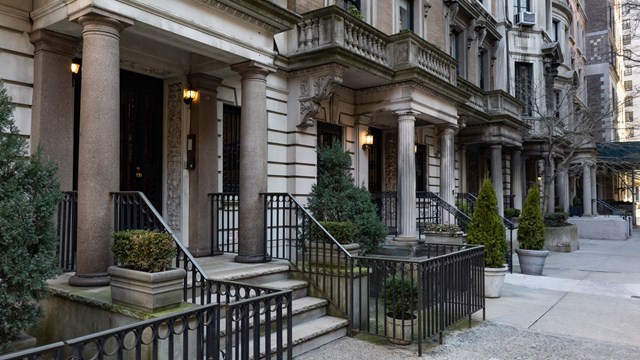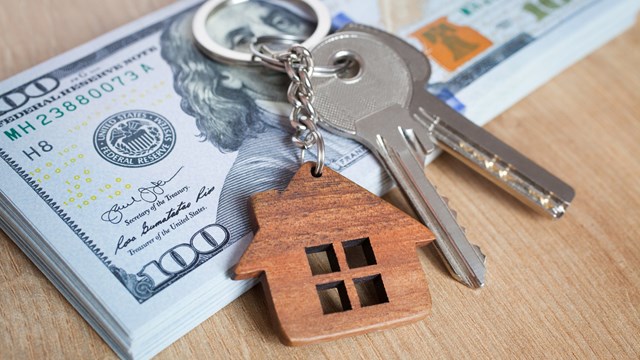Though the real estate crisis didn't rattle New York City to nearly the degree that it did other markets around the country, construction still stalled on many new developments during the recent recession. It’s not only location or the newest or shiniest buildings that attract buyers’ attention.
The market has since rebounded and new developments are going up at a furious pace, so the pressure is back on brokers to distinguish themselves and their listed properties from a field crowded with gleaming glass-and-steel high-rises that all seem to feature the same list of high-end, ultra-luxe amenities.
Despite indications in the Real Estate Board of New York (REBNY)’s Real Estate Broker Confidence Index report, released in February, that uncertainty about interest rates and the volatility of the stock market has many residential brokers unsure of what the market conditions will be like six months from now, president of Stribling & Associates’ Elizabeth Stribling-Kivlan says that selling in today’s market is still all about well-priced apartments. “They are still in high demand and inventory is still historically low,” she says. “Buyers are used to an exceptional level of lifestyle and amenities now within the new development arena, and in resales, they want exceptionally appointed apartments that show well.”
History and Housewarming
Adelaide Polsinelli, senior managing director and principal with Manhattan-based real estate investment firm Eastern Consolidated says that while she has always tried to distinguish herself from the rest of the broker pack, selling multi-million dollar units these days takes more effort than just hanging out a ‘For Sale’ sign, baking some homemade cookies and hosting an open house.
“In the last few deals that I thought had some significance, I teamed up with Kevin Draper of NY Historical Tours,” says Polsinelli. “We had potential buyers and investors come to the building with us and talk about the past, present and future of the neighborhood. This is important no matter how the market is doing. It brings a whole different element to the real estate market and gives it a life of its own. It is fun, educational and adds value to what we’ve done.” These historical tours have included the South Street Seaport, the Thanksgiving Day Parade route, a Halloween ghost tour of Lower Manhattan, and a tour of Roosevelt Island.
For her part, Stribling-Kivlan says she has seen an uptick in staging inside units. “I see this more on the new development side of the company for launch parties and broker events,” she says. “In terms of resales, if there is a great view or sunset or an exceptional apartment, there will be a curated event to showcase all the features.”
Other Unusual Measures
Other brokers and firms have come up with their own creative ways to interest and engage prospective buyers. To help spark interest among home-seekers, Mike Namer, founder of Manhattan-based residential developer Alfa Development, once hosted a performance by the Metropolitan Opera and a party catered by Barney's restaurant Fred's. Dan Critchett, a licensed real estate salesperson at Stribling, has been known to take his potential buyers hang gliding. Gimmicky? Maybe—but Critchett, who was interviewed on his tactics for The New York Times, says that “Buyer loyalty is one of the most difficult things to obtain. You’ve got to have a gimmick.” In that same article, other agents talked about scavenger hunts, trips to Costco, video game playing and even turkey hunting as unique ways they tried to woo buyers.
Shark Tank’s Barbara Corcoran, also the founder of The Corcoran Group brokerage and development firm, has been interviewed about her unique style of real estate promotion, including purchasing life-size photo cutouts of celebrities, such as Frank Sinatra, and posing them in the seller’s living room. The shots are then included in the online listings, which Corcoran is convinced ‘gets people talking.’ On one unit, she relied on bringing in a professional ‘smudger’ who burned fragrant sage throughout a huge Park Avenue apartment to help cleanse the negative energy left behind by previous owners who fought a lot. Corcoran says that it worked; “The first customers that walked in sat on the bed. And that couple made a full-price offer. I’m a believer.”
Michele Kleier, president of Kleier Residential in Manhattan, has held such similar events as book signings and mixology parties, where guests learn about different cocktails and drinks and how to make them. “We were hoping that the apartment looked better at night after tasting a few margaritas,” laughs Kleier.
At one prewar Park Avenue building, a unit was selling for $5.5 million and Kleier once again put her creative juices to task to get it sold. This nine-room apartment with high ceilings and fireplaces was owned by a cabaret singer, and Kleier knew that a party with the entertainer would be the perfect way to draw attention to the unit. “She entertained the guests while we served hors-d'oeuvres,” says Kleier. “She sang classics, which fit the prewar style of the building that she lived in. When you do events like these, you have to match the event you are doing with the building it is in. For example, the cabaret singer might not have worked as well in a new construction building.”
To push one unit, Kleier created a charity event prior to the Park Avenue tree lighting in December. The event raised money for the Fund for Park Avenue, a non-profit organization that spends $1 million a year to beautify the medians along Park Avenue. “There were 200 people there, and it brought wonderful attention to the unit,” she says. “These events are also typically held for buildings with a multi-million dollar price point. When you have a unit for over $10 million people are going to come and see the apartment anyway, especially if it’s well done.”
But Does it Work?
Fancy cocktail parties and command performances are definitely attention-getting—but are these events really what’s making buyers sign on the dotted line? Since an historic tour of the Bowery she orchestrated with Draper three years ago, Polsinelli says that while she has sold two apartments in the area—and while she admits she can’t necessarily trace those sales directly back to the tours, she believes that they ultimately helped to spread the word about the properties. “The amount of hits on the listings that I get are increasing every time we hold an event,” she says. “Plus, they get written about in, say, the New York Post, and it’s branding for the apartment.”
Kleier agrees that while creative promotional events do work to get potential buyers in the door of a luxury unit, they are not what ultimately sells it. “A good apartment that’s priced well is what gets an apartment sold all the time,” she says. “If it’s overpriced, the event doesn’t even matter. You’re taking a chance, because 90% of the people who are coming to an event are curious about the author, or the drinking. Also, these events work for condos, but not co-op buildings, where management needs to control the number of people who are attending.”
This creativity is especially important now, when according to the REBNY report, “Condo sales in the top, ultra-luxury segment of the market have continued to ease back, which has had an impact on the average sales price for a home, particularly in Manhattan.”
The Broker's Perspective
Polsinelli knows just what it's like to have to reinvent the wheel in order to sell units, as well as entire buildings. She’s been in the business for more than 30 years, but also served as a board president in her own building. “I was responsible for a $30 million job to replace fallen bricks, so we had to be creative in our plan to raise money,” she says. “After surviving three or four different wars as a board member, I learned a new approach for the next time.”
She says that her creativity has been extremely important to survive as a broker. “Real estate is a cyclical business, and many brokers and salespeople do not know how to manage their income,” she says. “They have a banner year and go out and buy a Ferrari or a time share. Then the market turns and you can’t afford what you just bought. You have to learn how to balance the income when you are an independent contractor.”
Buying and Selling
According to the New York Times, there were more than 52,000 licensed real estate agents and brokers in New York City, nearly 28,000 active in Manhattan alone—but if home prices weaken going into the next year or so, those numbers could very well decline.
“When you see the market start to slow down, brokers and salespersons go out of business,” says Polsinelli. “Right now, we are seeing an increase in a number of brokers getting licenses, but when there is not as much activity—which means there are too many listings and too few deals—the brokers take themselves out of the game and go to different businesses.
Obviously, someone who's about to drop millions (sometimes many millions) on an apartment is likely going to take a very long, hard look at any property their broker shows them—and they're likely going to have some very specific ideas about what they do and do not want in their future home. For those just beginning the process, even knowing where to start or what to look for can be daunting. In a housing market as crowded, fast-paced, and dazzling as New York City's, brokers who are prepared to apply some creativity and zest to the seeking-and-buying process may find themselves ahead of the pack.
Lisa Iannucci is a freelance writer and a regular contributor to The Cooperator.







Leave a Comment